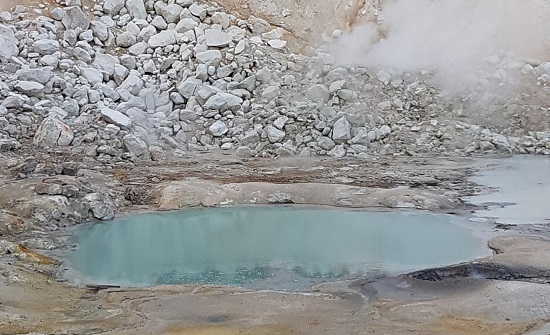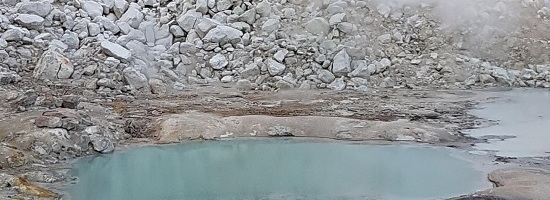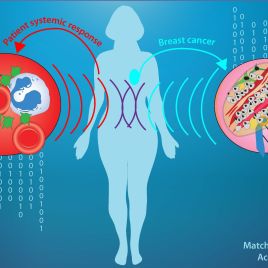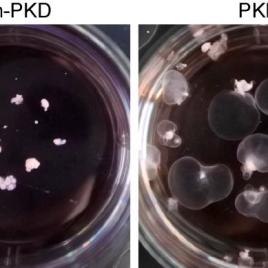
A warm little pond on present day Earth on the Bumpass Hell trail in Lassen Volcanic National Park in California.
(Image by Ben K.D. Pearce, McMaster University)
Scientists found new evidence to support the “warm little ponds” theory of the beginnings of life on Earth, which puts the ponds as a top candidate for the initial favorable conditions for the appearance of living organisms. The new paper places the emergence of life into the process of Earth’s formation, while the planet was still being pelted by numerous meteorites. Their calculations suggest the meteorites deposited the necessary chemicals into Earth’s ponds, where wet and dry cycles bonded basic molecular building blocks in the ponds’ nutrient-rich broth into self-replicating RNA molecules. These molecules constituted the first genetic code for life on the planet. In the present study, scientists examined both leading rival causes for origins of life—hydrothermal vents and space dust—and eliminated them based on their inability to fulfill the necessary environmental conditions to form RNA molecules.
Authors:
Ben K. D. Pearce, Ralph E. Pudritz, Dmitry A. Semenov, and Thomas K. Henning
Corresponding author:
Ben Pearce, Department of Physics and Astronomy, Origins Institute, McMaster University, Hamilton, ON, Email: pearcbe@mcmaster.ca
Original paper published in PNAS on October 2, 2017.



